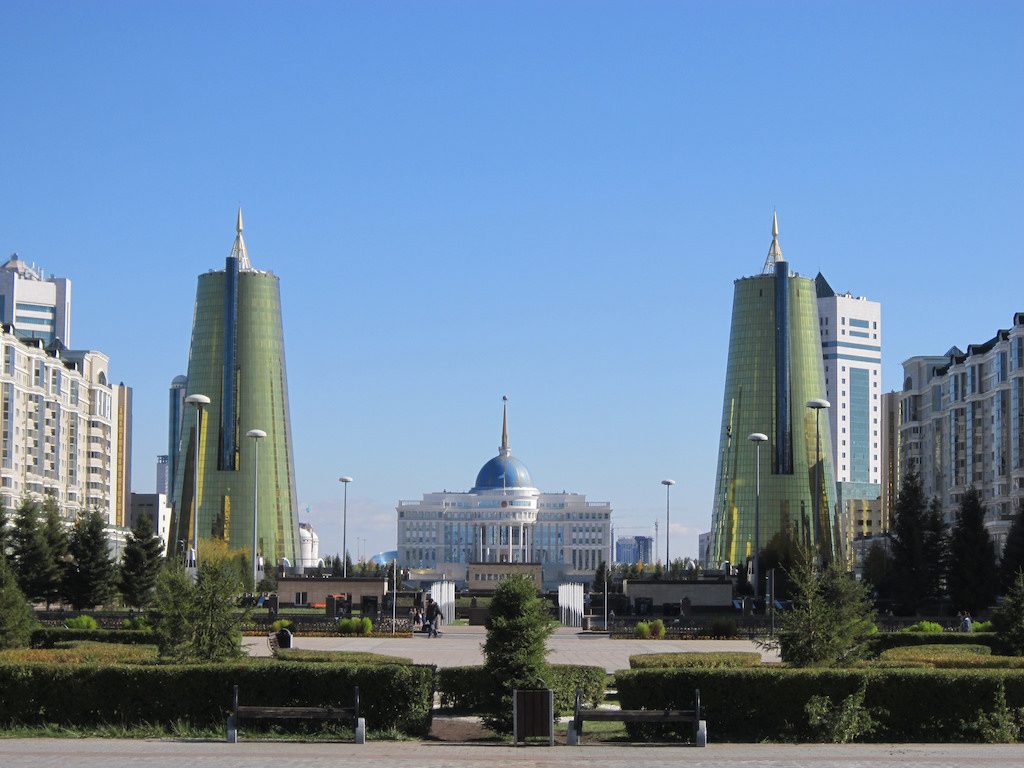27 January 2021
Grounds of responsibility of a foreigner
In accordance with the local laws, the foreigners, who have committed criminal, administrative or other offenses on the territory Kazakhstan shall be liable on general grounds. In other words, the criminal investigation as well as further punishment will be conducted in accordance with the laws of Kazakhstan.
Therefore, as a general rule, the foreigners and local citizens have the same rights and legal obligations.
Based on the abovementioned, a police officer has the right to detain a person, suspected of committing a crime, if there are one the following grounds:
-
when the person is caught during the commission of the crime or immediately after its commission;
-
when eye-witnesses (witnesses), including the victims, directly point out the person committed the crime or detain that person;
-
when clear evidence of a crime is found in that person or his/her clothes with him/her or in his/her home;
-
when there are reliable information on the crime committed or planned by him/her based on the result of materials of operational-investigative.
What must a foreigner know during the detention?
An arresting officer shall verbally communicate to the foreigner the fact that he/she is detained, explain to him/her the right to call a defence counsel, the right to remain silent and that anything he/she says may be used against him/her in court.
It is worth noting that as a general rule, none of the people involved in the criminal proceedings may be subjected to torture or other cruel, inhumane, or degrading treatment or punishment. In other words, the police shall not act in cruel or inhumane ways.
The exception is when the police uses the force during the arrest for the purposes of detention to the police station and/or to prevent him from committing new offences. It is necessary to note that such force must be within the limits of permissible criteria.
In practice, it is quite difficult to prove that the police exceeded permissible force as the police may state the detainee resisted during the detention.
Is there a right to have a defence counsel for foreigner?
A suspect/accused/defendant/convicted person may have the right to free legal advice. The participation of a defence counsel is ensured from the moment a person is recognised as a suspect/accused as well as at any subsequent time of the criminal process.
A suspect has the right to engage a defence counsel independently or through his/her relatives or proxies. If a defence counsel is not invited by the suspect, his/her relatives, or proxies, the criminal prosecution body shall ensure the participation of a defence counsel for the appropriate stage of the process by issuing a resolution binding on the professional organisation of lawyers.
What about the language barriers?
If the detained person does not speak Kazakh and/or Russian languages or he/she is not able to adequately perceive an explanation of his/her rights at the moment of detention due to alcohol, drug, intoxication, or painful psychosomatic condition, the rights of the suspect shall be explained to him/her, respectively, in the presence of an interpreter (if necessary) and/or the defence counsel before being interrogated as a suspect. This must be specified in the record of interview.
In addition, detainee has the right to testify in his/her native language or in the language he/she speaks and to use the free assistance of an interpreter. The costs associated with the interpreter are borne by the state.
The body conducting the criminal proceedings shall issue a resolution on the appointment of a person as an interpreter.
Does the police officer have to notify the Embassy?
The persons carrying out pre-trial investigation shall write a notification letter and send it to the Ministry of Foreign Affairs of Kazakhstan.
The Ministry of Foreign Affairs of Kazakhstan shall notify the embassy, consulate, or representation of this state about the detention of a foreigner immediately or within twenty-four (24) hours if immediate notification is not possible at the time of detention.
For how long a foreigner may be detained?
A person may be detained on suspicion of committing a crime for a period not exceeding forty-eight (48) hours and on a minor for a period not exceeding twenty-four (24) hours, with the following exceptions where detention for a period not exceeding seventy-two (72) hours is permitted.
If a suspicion of criminal offence is not confirmed or there is no decision on detention on remand, the detainee shall be released.
Does the foreigner have the right for the meetings with a defense counsel?
From the moment of detention, the suspect/accused is granted private and confidential meetings with his/her defence counsel/ with an official representative of a diplomatic mission or consular office of a foreign state/ with representatives of trade unions and other public associations who act as defenders. The number and duration of visits are not limited.
Where will be foreigner detained pending trial?
There are different types of preventive measures for suspects/accused persons such as:
-
restricted residence;
-
a personal guarantee;
-
placing a serviceman under the supervision of the commander of a military unit;
-
returning a minor under supervision;
-
a bail;
-
house arrest;
-
detention on remand.
Only persons against whom the measure in the form of detention on remand is applied will be held in the detention facilities. The suspects, to whom detention was applied as a preventive measure are kept in pre-trial detention facilities.
What if a foreigner is convicted?
Unfortunately, the legislation as well as practice do not provide for specific prison for foreigners in Kazakhstan. Therefore, a foreigner serves a time in prison alongside with the local citizens.
It is necessary to note, that the foreigner may request for the transfer to his/her home country based on the applicable bilateral international treaties.
For further information, please contact:
Saniya Perzadayeva, Managing Partner, Unicase Law Firm
saniya.p@unicaselaw.com


.jpg)




